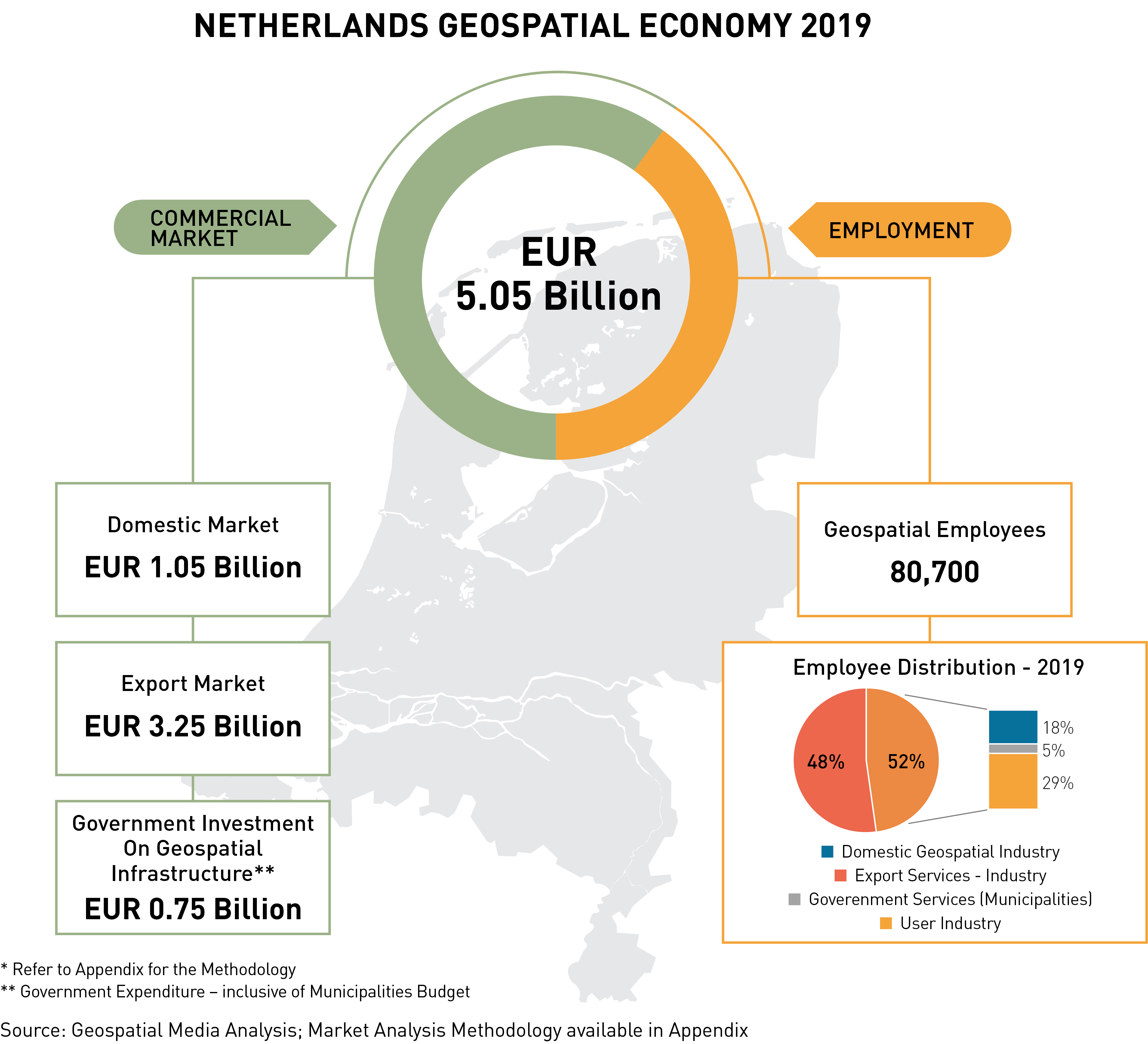این گزارش را حتماً بخوانید
NETHERLANDS GEOLOCATION ECONOMY REPORT
Market | Economy | Impact
The Netherlands Geolocation Economy report, prepared by Geospatial Media and Communications, in partnership with the Ministry of the Interior and Kingdom Relations of the Netherlands and Geonovum, highlights the value of the geospatial market of the Netherlands and the impact of the same on the country’s economy. The report emphasizes the need for transforming the current geospatial infrastructure model of a country to develop a Geospatial Knowledge Infrastructure (GKI) of tomorrow to integrate geospatial information, analytics, and visualization in order to aid effective decision-making across all sectors. Further, the report also showcases a comprehensive, collaborative, connected and innovative Digital Twin model encompassing engineering and geospatial tools to build a National Digital Twin.



